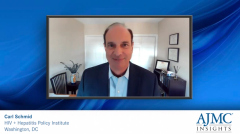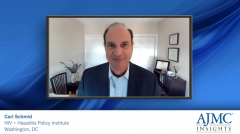
Identifying the Right Patient for Injectable PrEP
Dr Lynne H. Milgram starts the conversation on choosing the right candidate for long-acting injectable PrEP, as well as how findings show it is cost effective.
Episodes in this series

Lynne Milgram, MD, MBA, CPE: The conversation needs to begin with the health care provider and the patient, and a good history has to be taken. It needs to be joint decision-making, clinical decision-making between patient and provider. This invincible but vulnerable at-risk population, those that want to hide that they're taking prophylaxis, are not going to take a pill a day. I don't think they should [hide it], but they do. There's a large population out there, people who just forget pills, people who don't understand why they have to take it every day. They need the prophylaxis, but the everyday pill is not going to work for them. Yet, there are many who the everyday pill will work for, but we need modalities, and a long-acting injectable is a great modality for a large portion of the population.
If you go into the store and you have an apple for $5.00 and an apple for $1.00, you're probably going to take the apple for $1.00. The problem with the study is it compared a price, and I don't even know if it was an accurate price, of a long-acting injectable to a generic PrEP, a generic prophylaxis for HIV. What it didn't do is take into account everything that we're talking about. What is the likelihood of adherence? How good is that apple if you don't eat it? How good are the pills if you don't take them? My understanding is that there may be some demonstration of superiority with the injectables in certain populations. That's important. Sometimes with the injectables, it's not just about price. It's about safety, efficacy, the long-term consequences. While I appreciate comparing apples to apples, I don't think we can in this case. We have to have a caveat or at least a footnote of, maybe we use generics on a percentage of the population. It's hard to say we are going to use a pill a day, even if it's less expensive, if people aren't going to take it. Not looking at long-term consequences is probably the biggest shortfall of the study.
Transcript edited for clarity.
Newsletter
Stay ahead of policy, cost, and value—subscribe to AJMC for expert insights at the intersection of clinical care and health economics.













